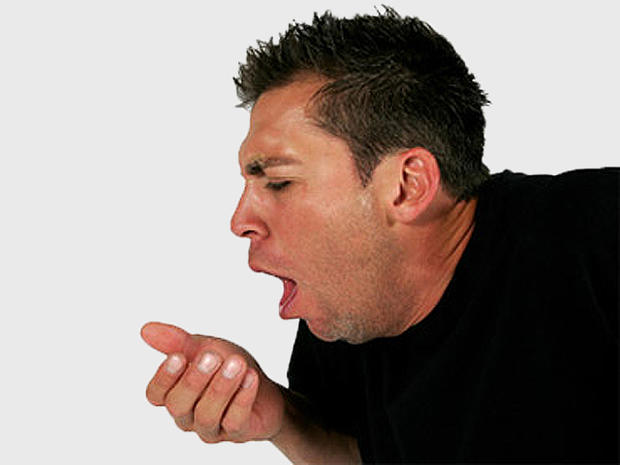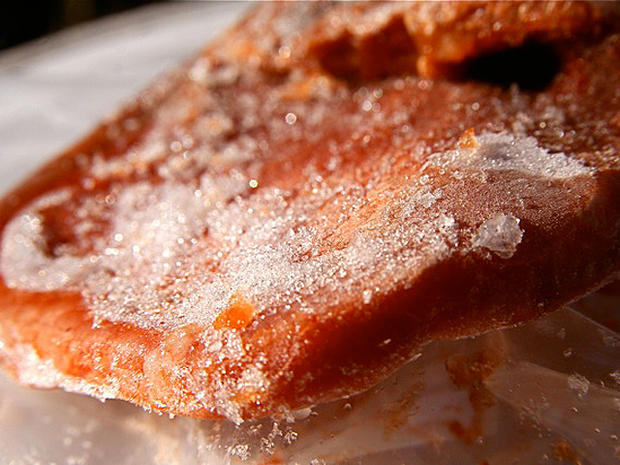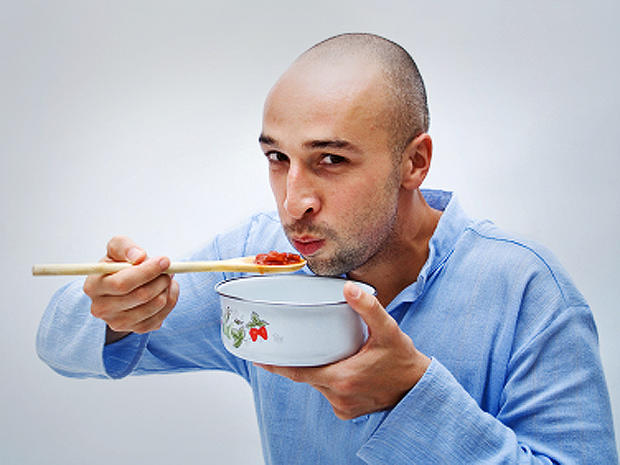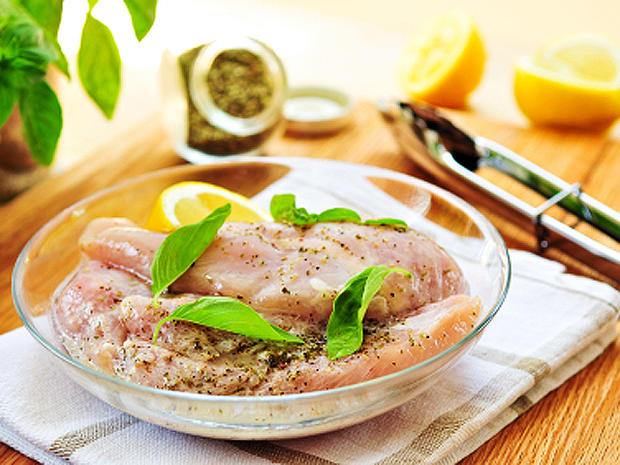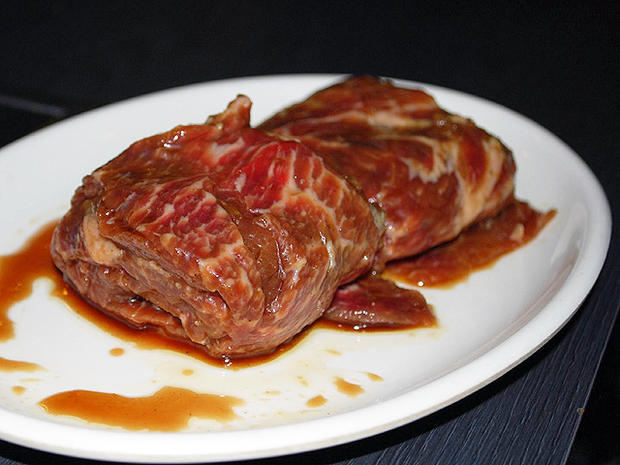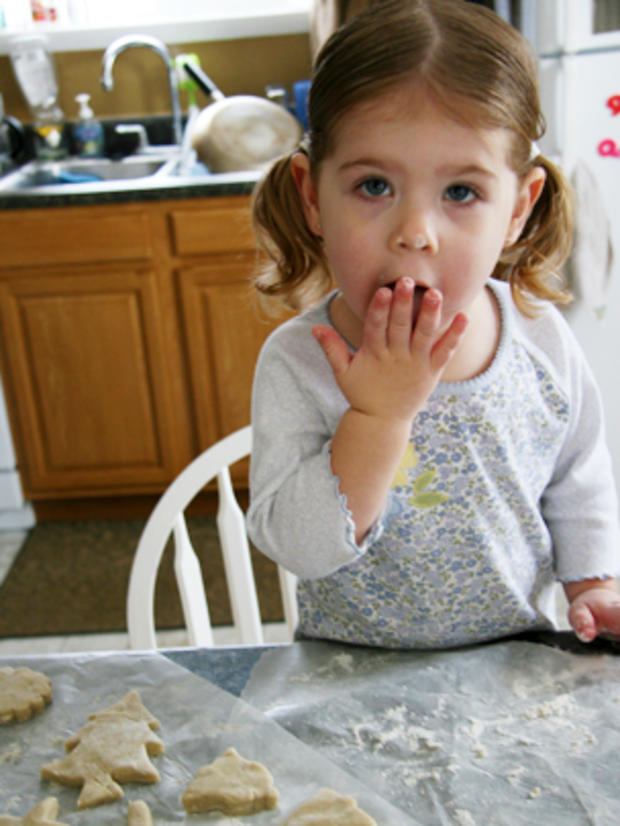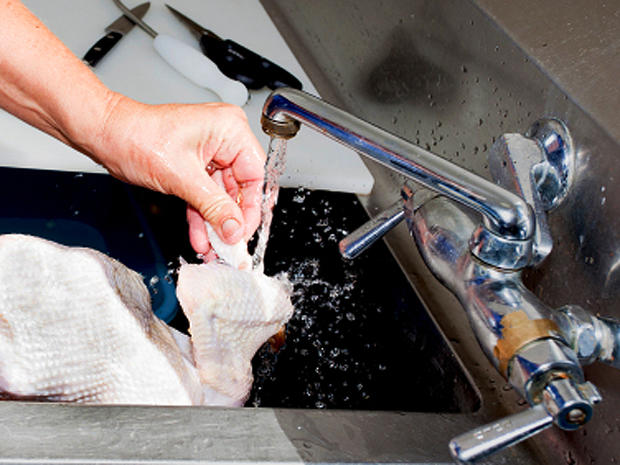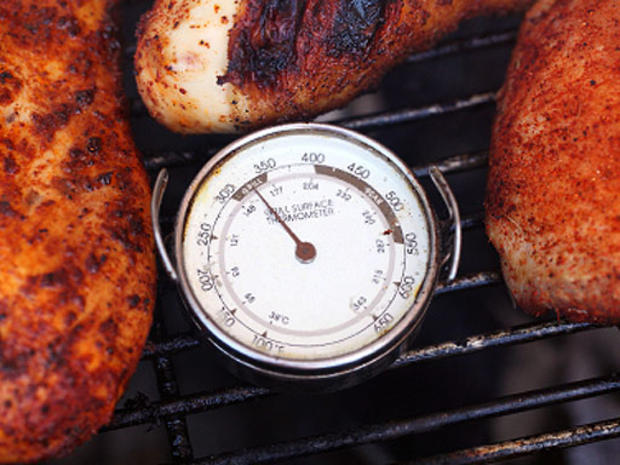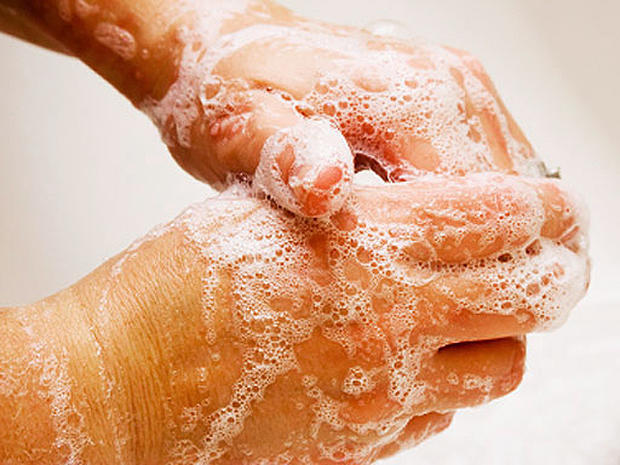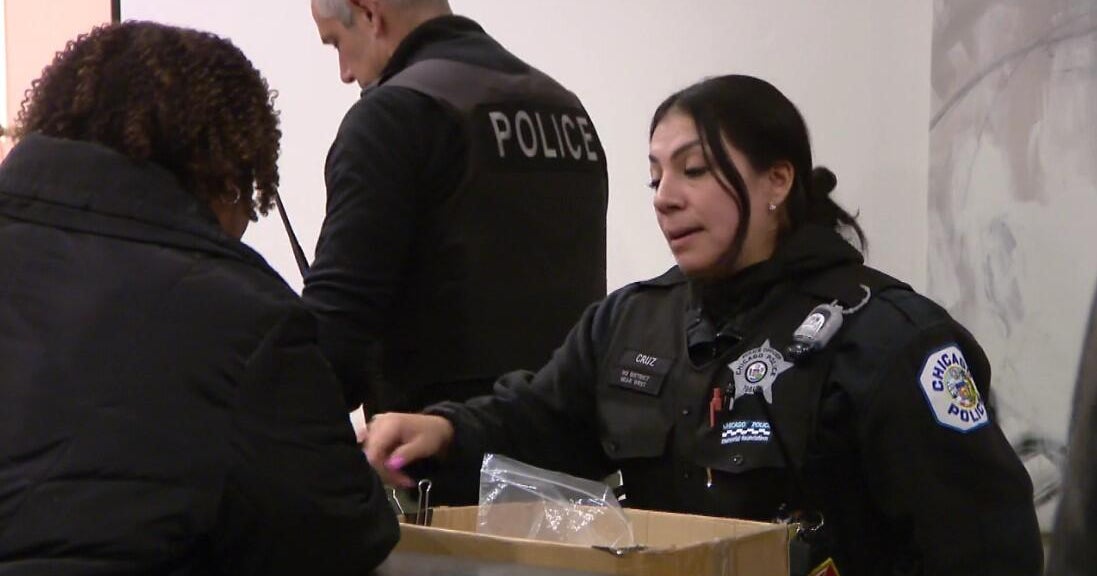10 dangerous but common food safety mistakes
Sometimes simple mistakes in the kitchen can lead to more serious consequences - in the bathroom. Food safety isn't just about making sure your food isn't weeks old or your fruit isn't loaded with pesticides. Sometimes, all it takes is 15 to 20 cells in undercooked food to cause food poisoning - which can cause paralysis and even death.
Keep clicking to see ten common - yet dangerous - food safety mistakes detected by FoodSafety.gov...
Tasting food to see if it's OK
A quick taste test might seem like the best way to see if food has gone bad - but even tasting a tiny amount of spoiled food can cause serious illness. Not only that, you actually can't taste - or smell or see - the bacteria that causes food poisoning. So what should you do? Keep track of dates and times - throw out food before harmful bacteria grows. Check the Safe Storage Times chart to be sure.
Thawing food on the counter
To thaw food, you should take it out of the freezer and slap it on the counter - right? Wrong. Harmful germs can multiply extremely rapidly at room temperature - making your food unsafe to eat. To thaw food safely, let it defrost in the refrigerator, cold water, or pop it in the microwave and use the defrost setting.
Letting food cool before putting it in the fridge
People often wait for their leftovers to cool down completely before sticking them in the fridge. But illness-causing bacteria can grow in perishable foods within two hours unless you refrigerate them - or within one hour if the temperature is over 90 degrees.
Marinating meat or seafood on the counter
Marinating meat or seafood in a plastic bag on the counter is a no-no, says Foodsafety.gov. Leaving it out in room temperature can cause germs to multiply extremely rapidly. Always marinate meat or seafood in the refrigerator, where it can safely remain for hours while soaking up flavor.
Using raw meat marinade on cooked food
Meat itself isn't the only thing that carries germs - marinade from raw meat can be just as dangerous. If you reuse marinade for sauce, germs from the raw meat or seafood can spread to the cooked food. What should you do with your leftover marinade? Boil it! That kills the germs and makes it safe to use again.
Eating raw cookie dough (or other foods with uncooked eggs)
What may be the yummiest part of making cookies is also the most dangerous. Uncooked or raw eggs may contain Salmonella or other harmful bacteria.
Putting cooked meat back on a plate that held raw meat
This is a common one at summertime barbecues. If a plate once held raw meat, chances are it's full of germs until you clean it. So after you're done cooking the meat, make sure to put it on a different plate. Germs will spread to cooked meat , poultry and seafood.
Washing meat or poultry
Washing raw meat or poultry may seem like the best way to make sure it's clean, but doing so spreads bacteria to your sink, countertops, and other surfaces in your kitchen. There is no need to wash meat, poultry, or eggs - just cook them thoroughly.
Undercooking meat, poultry, seafood, or eggs
Not all cooking temperatures are the same. Meat, poultry, seafood, and eggs all require different amounts of heat to kill harmful bacteria. Use the Safe Minimum Cooking Temperatures chart and a food thermometer to make sure your meat is germ-free.
Not washing your hands
Common knowledge, yet often neglected - wash your hands! Even if your meat is safe, your hands might not be, and that can cause serious illness. Wash your hands for 20 seconds with soap and running water anytime you deal with food.
